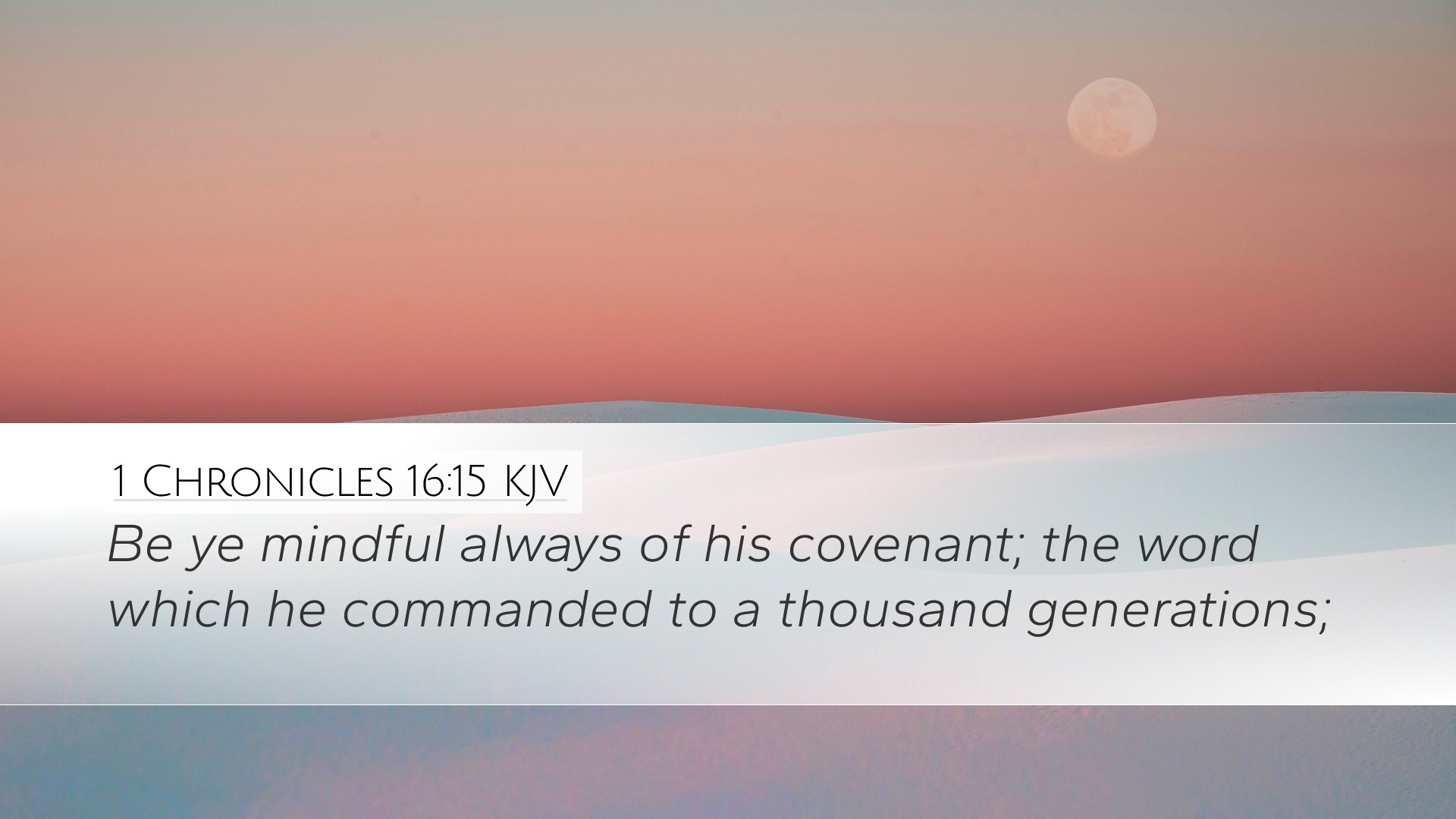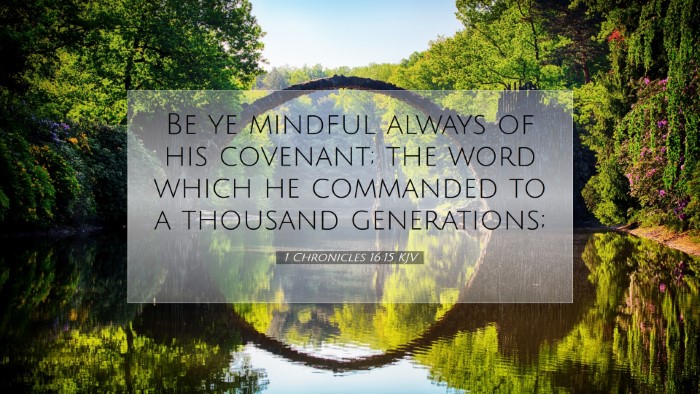Commentary on 1 Chronicles 16:15
Verse: "Remember his covenant forever, the word which he commanded to a thousand generations;" (1 Chronicles 16:15, NKJV)
Introduction
The text of 1 Chronicles 16:15 serves as a poignant reminder to the people of Israel about the enduring nature of God's promises. This verse is set within a larger context of worship and celebration, following the bringing of the Ark of the Covenant to Jerusalem. Commentators such as Matthew Henry, Albert Barnes, and Adam Clarke provide valuable insights into the theological and practical implications of this key verse.
Theological Significance
This verse succinctly encapsulates the concept of divine fidelity. The command to "remember his covenant forever" underscores the everlasting nature of God's promises to His people. It invites reflection on both the historical covenants made with figures such as Abraham, Moses, and David, and God's continued faithfulness through the ages.
Matthew Henry's Insights
Henry emphasizes the importance of remembrance in the life of faith. He posits that forgetting God’s promises leads to spiritual decline and disobedience. In his view, to remember God’s covenant is to engage in a consistent reflection on His faithfulness—providing a source of strength and encouragement for believers. Henry notes that remembering God’s Word not only affirms one’s faith but also renews it.
Albert Barnes’ Perspective
Barnes highlights the notion of covenant as a binding agreement between God and His people. He draws parallels between the ancient Israelite understanding of covenant and the Christian notion of grace. Barnes points out that the phrase "to a thousand generations" signifies incomprehensible longevity, emphasizing that God’s promises extend beyond immediate generations. This includes the assurance of mercy and grace available through Jesus Christ, who fulfills the ultimate covenant.
Adam Clarke's Commentary
Clarke's commentary brings a strong focus on the urgency and importance of corporate memory within the community of faith. He argues that the act of remembering is not only a personal enterprise but a collective duty. By remembering God's covenant, the community stands as a testament to His faithfulness, thereby strengthening the faith of both current and future generations. Clarke challenges readers to consider how they nurture this memory within their communities.
Practical Applications
Understanding the lasting nature of God's covenant invites various implications for both individual believers and congregations. Here are several applications derived from the insights of the aforementioned commentators:
- Personal Reflection: Engage in regular reflection on God’s past faithfulness in your life. Consider journaling or prayerfully meditating on the ways He has fulfilled His promises.
- Community Remembrance: Incorporate stories of God’s faithfulness into church gatherings. This can be done through testimonies, shared worship, or Bible study discussions that highlight God’s enduring nature.
- Covenant Renewal: Encourage congregational practices that renew commitment to God's covenant, such as renewing baptismal vows or participating in communion with an understanding of its covenantal significance.
- Intergenerational Teaching: Establish programs within the church aimed at teaching the younger generations about God’s promises, ensuring that the legacy of faith is passed down.
Conclusion
1 Chronicles 16:15 not only reminds Israel of their historical and spiritual identity but also challenges contemporary believers to hold fast to the promises of God. By remembering His covenant, we engage deeply with our faith, allowing its truth to shape our lives and communities. Drawing from the rich commentary of noted biblical scholars, we gain insight into how to practically live out this call to remembrance in today’s world.


